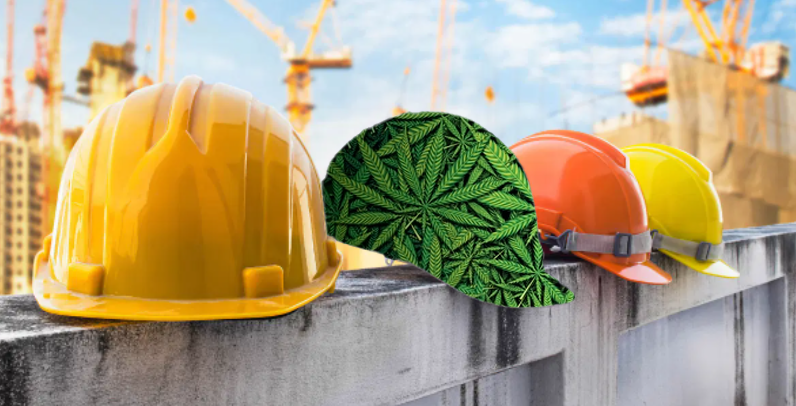New cannabis bill could see construction taking the high road
The proposed amendments to the Cannabis for Private Purposes bill that seeks to further decriminalise cannabis usage and legalise South Africa’s commercial cannabis industry could have serious ramifications for the construction industry if employers do not put appropriate measures in place to ensure that all on-site workers are working safely and following the correct safety procedures.
“Besides the fact that construction sites are riddled with job hazards, the work itself is physically demanding, so it’s not unheard of for workers to use cannabis as a means of dealing with the physical pain and mental stress that comes with working on a construction site,” says Databuild CEO Morag Evans. “Research reveals that at least 15 per cent of construction workers are cannabis users. If the new bill is passed into law these numbers could increase significantly.”
The effects of cannabis last many hours, which means that workers who have used the drug at home could still be high when they report for work.
It is well-documented that cannabis has a detrimental effect on the user’s occupational capacity. Impaired concentration means tasks are performed more slowly, routine tasks are executed poorly, and the worker has difficulty in making crucial decisions and taking instructions from superiors.
“If these workers operate heavy machinery, vehicles and other dangerous tools and equipment while under the influence they not only place themselves at risk, but also their co-workers,” says Evans.
Statistics published recently by the Federated Employers Mutual Assurance Company (FEM) reveal that an average 36 people are injured on construction sites daily.
“These figures are cause for serious concern, but what is even more worrying is that they only apply to FEM-insured employers,” Evans points out. “This means that the number of accidents occurring in the construction industry is actually higher than what FEM is reporting.”
The Occupational Health and Safety Act mandates all employers to provide a safe and healthy environment for their employees, but besides these legal obligations, Evans says all construction industry employers have a moral responsibility to ensure that construction sites are free from any risk to their health and safety of their employees.
“Employees must be protected from anything that could be a potential hazard to the construction site, including risky construction activities, infectious disease (such as Covid-19) and substance abuse.
“Project health and safety plans should incorporate a substance abuse policy that stipulates zero tolerance, and includes fair and transparent drug screening and testing, as well as penalties for non-compliance.
“Additionally, training and awareness programmes that highlight the effects, signs and consequences of substance abuse should be implemented, together with rehabilitation and support programmes for workers who are identified as having a substance abuse problem. “Most importantly, workers need to understand that health and safety legislation, policies and programmes are not intended to be punitive but are formulated in their best interests,” Evans concludes. “Employers do not want their workers to lose their jobs. They just want them to be safe.”


